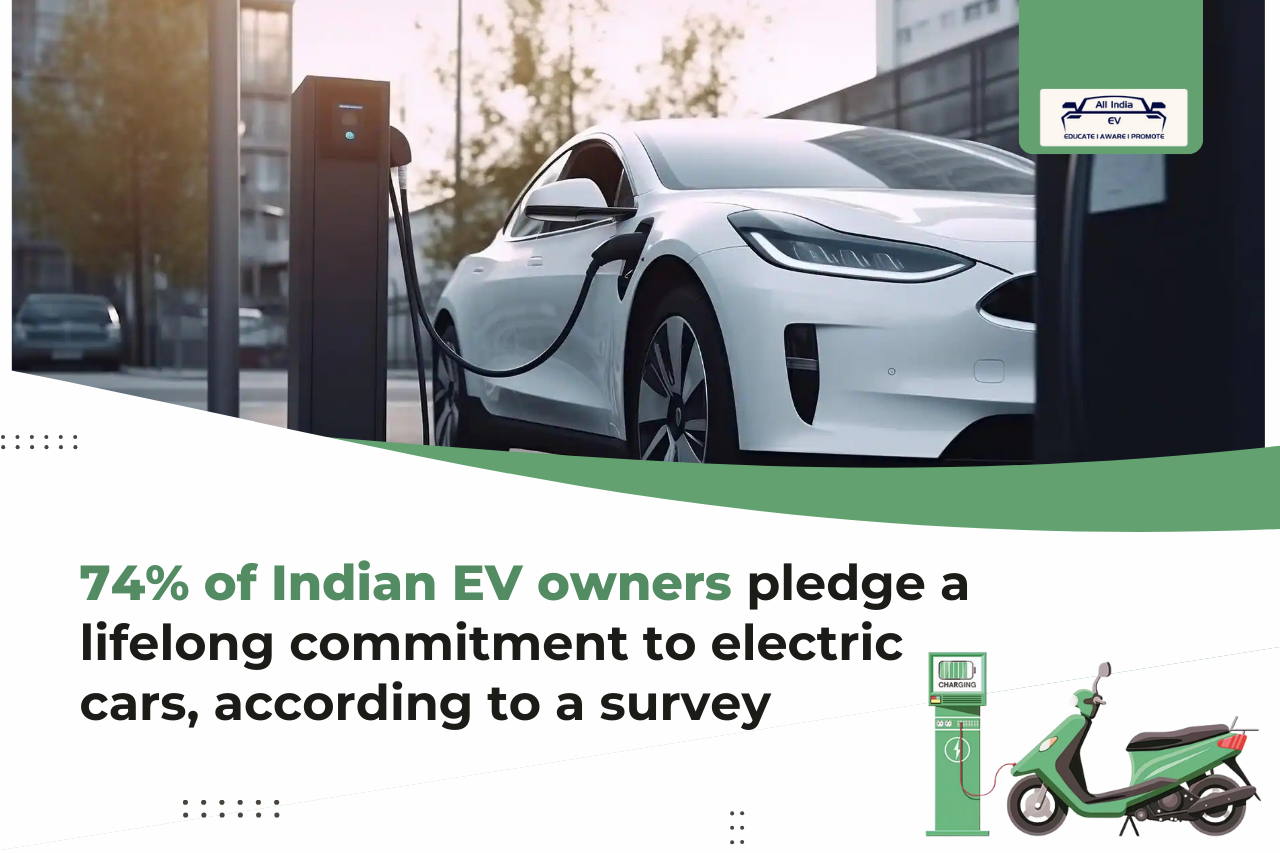
Survey Reveals 74% of Indian EV Owners Commit to Electric Cars for Life
A recent survey conducted by Park+ Research Labs has unveiled a significant shift in the mindset of Indian electric vehicle (EV) owners, with 74% pledging lifelong commitment to electric cars. The survey, which targeted 1,330 recent EV owners who purchased their vehicles after January 1, 2024, highlights the growing acceptance and enthusiasm for sustainable transportation in India. Economic considerations emerged as the primary motivation for this transition, with 29% of respondents citing cheaper ownership costs as their main reason for choosing EVs. Environmental consciousness and the desire to embrace cutting-edge automotive technology were also significant factors, influencing 25% and 21% of respondents, respectively. Despite the positive sentiment, the survey also identified several challenges faced by EV owners, including inadequate charging infrastructure, range anxiety, and long charging times. The findings underscore the need for continued improvements in the EV ecosystem to support the increasing adoption of electric vehicles. The survey also revealed a strong desire for community engagement among EV owners, with 71% expressing the need for EV clubs and communities to share their experiences and support each other. As India continues its transition towards sustainable transportation, addressing these challenges and fostering community engagement will be crucial in maintaining the current positive trajectory in EV adoption.
Economic and Environmental Motivations
The survey conducted by Park+ Research Labs highlights the primary motivations driving the transition to electric vehicles among Indian consumers. Economic considerations emerged as the top reason, with 29% of respondents citing cheaper ownership costs as their main motivation. The lower cost of electricity compared to traditional fuels, along with reduced maintenance expenses, makes EVs an attractive option for cost-conscious consumers. Environmental consciousness also played a significant role, with 25% of respondents motivated by the desire to reduce their carbon footprint and contribute to a cleaner environment. The survey indicates that the growing awareness of climate change and the need for sustainable transportation solutions are influencing consumer behavior. Additionally, 21% of respondents were driven by the desire to embrace cutting-edge automotive technology, highlighting the appeal of advanced features and innovations offered by electric vehicles.
Challenges Faced by EV Owners
Despite the positive sentiment towards electric vehicles, the survey identified several challenges faced by EV owners in India. Inadequate charging infrastructure was the most significant concern, with 24% of respondents highlighting the need for more accessible and reliable charging stations. Range anxiety, or the fear of running out of battery power before reaching a charging point, was another major issue, affecting 23% of respondents. Long charging times also posed a challenge, with 21% of EV owners expressing frustration over the time required to recharge their vehicles. These challenges underscore the need for continued investment in charging infrastructure and technological advancements to improve the overall EV ownership experience. Addressing these issues will be crucial in supporting the growing adoption of electric vehicles and ensuring a seamless transition to sustainable transportation.
Importance of Community Engagement
The survey revealed a strong desire for community engagement among EV owners, with 71% expressing the need for EV clubs and communities. This social aspect of EV ownership appears to be a crucial missing link in the current ecosystem. EV clubs and communities can provide a platform for owners to share their experiences, offer support, and exchange information about best practices and new developments in the EV sector. Such engagement can help build confidence among potential buyers and foster a sense of belonging among existing owners. The survey indicates that increased visibility of EVs on Indian roads, improvements in charging station availability, and social support from family and friends are key enablers of EV adoption. By nurturing community engagement, stakeholders can create a supportive environment that encourages more consumers to switch to electric vehicles.
Future Prospects and Recommendations
To support the growing adoption of electric vehicles, there is a need for more accessible and safe public charging points. Continued investment in charging infrastructure will help alleviate concerns about inadequate charging facilities and range anxiety. Developing faster-charging batteries and reducing EV prices are essential to enhance the overall ownership experience. Technological innovations can address the challenges of long charging times and make EVs more affordable for a broader range of consumers. Government policies and incentives can play a crucial role in promoting the adoption of electric vehicles. Financial incentives, tax benefits, and subsidies can encourage consumers to switch to EVs and support the development of necessary infrastructure. Fostering community engagement through EV clubs and communities can provide valuable support and information for EV owners. Creating a platform for owners to share their experiences and offer mutual support can enhance confidence in EV adoption and build a strong sense of community. By nurturing community engagement, stakeholders can create a supportive environment that encourages more consumers to switch to electric vehicles.









